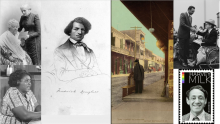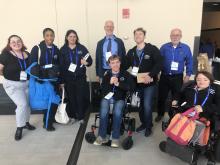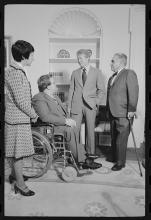Inclusive History News
In this Issue:
- News of the Field
- Disability History News & Resources
- Events @ Emerging America
- Other Professional Development Events
- Teaching Resources
- New at the Library of Congress
January Featured Blog Post - Primary Sources: Demonstrating the Power of the Community - "Whose Independence," a lesson by Cheryl-Anne Amendola









